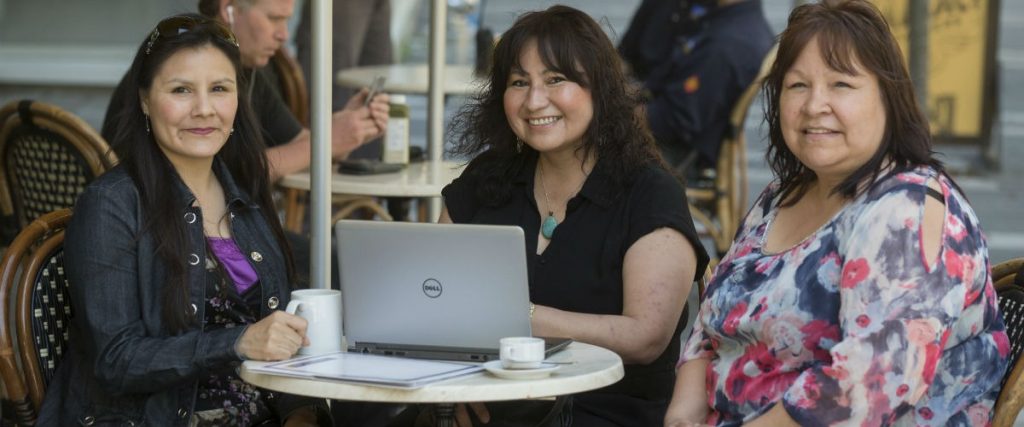The Indigenous Employment Hub
The community members of the Cowichan Nation Alliance (CNA) which is comprised of Halalt First Nation, Cowichan Tribes, Penelakut Tribe, and Stz’uminus First Nation in British Columbia, are striving to become independent self-sufficient communities. Employment and self-reliance are key to reaching this vision. However, employment opportunities have remained consistently poorer for Indigenous peoples compared to the general Canadian population. They are often faced with barriers such as lack of training and education, insufficient work experience, racism, gender stereotyping, and a gap in effective job research skills.
Evaluation Report:
Indigenous Employment Evaluation Report


Mix this mostly untapped workforce with a tight labour market that needs skilled trade workers and the Cowichan National Alliance saw an opportunity to develop The Indigenous Employment Hub (IEH). It will significantly increase short and long-term employment for community members, taking into account the unique needs and barriers to employment faced by the Indigenous communities, and align with industry’s unmet demand for skilled labour.
Future Skills Centre is investing almost $1.5 million in the IEH, which brings together First Nation communities, industry, private sector, provincial and federal government, and education providers under one roof to provide on-reserve, customized just-in-time skills training programs, recruitment, and placement services.
The IEH has access to a mostly untapped Indigenous workforce. Over the next two years, the IEH will provide 150 skills assessments, develop 100 training plans, provide 100 participants with skills training courses, and negotiate 80 skilled jobs for members in construction and infrastructure projects facing labour shortages.
Aspects of the project include:
- Providing training on-reserve;
- Offering a holistic approach that focuses on the person as a whole by providing a mix of essential skills, life skills, and technical/job skills;
- Using a learning approach based on the First Nation culture so community members can learn at their own pace.
Evaluation Strategy
This project will be evaluated using tools and approaches aligned with its goals, context, and stage of development. The evaluation will focus on generating the right evidence at the right moment to move the intervention forward. Read more about our evaluation strategy.





